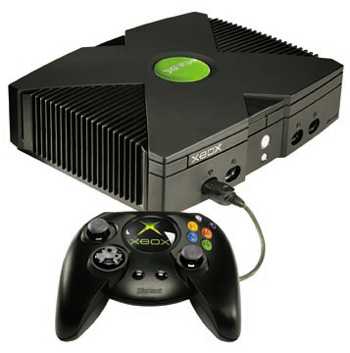Is Xbox the future of online console gaming?
Article - if it is, we'd sure like to know how
Microsoft of Japan has told journalists that it will be the Xbox, "not PlayStation or GameCube" that drives the world of online console gaming forward. A company spokesman told reporters on Friday that Microsoft is "drawing up a scheme to convince people that Xbox is the one". It seems a little strange that the company has yet to announce firm plans though, particularly with only two months remaining until launch.

Perspective
Realistically, for the next year or so most console gamers are going to be stuck on dial-up modems. The market in this country will be better served by optional broadband components that jack in to computers with ADSL, cable modems and ISDN, perhaps via USB or Firewire. The fact of the matter is though that broadband has not proliferated quite as expected, and for the next year or so it's still not going to sell consoles. We know that Microsoft believes its console to be 'broadband-ready' and that it expects many consumers to hook themselves up to cable, ADSL and other services. Let's not forget what they're up against. Sony aren't kidding themselves - PS2 will soon feature a modem, a broadband adapter and a hard disk, probably all as one unit. Owners of this peripheral will be able to get online, play games and download files, either through dial-up or by plugging their console into the back of a Telewest (and soon perhaps ntl) set-top box. That means gaming online, and within the same timescale that Microsoft's plans presumably require. It's a well-publicized fact that neither Nintendo nor Sony's present generation consoles can go online without modification via an external adapter. This is where Microsoft sees its advantage. The Xbox will simply plug right in there and go, they say. We want details. Even if you ignore the obvious requirement of a base-level modem dial-up adapter, it looks as though they are skating on thin ice. In this country alone, they are competing with Sony's deal to use the nationwide cable modem infrastructure. This network does not cover the whole of the UK, but it a large number of PS2 owners will have the ability to connect to a Sony-branded network.

Living in a dreamworld
Microsoft expects users to simply hook themselves up and go. There are plenty of potential pitfalls here, depending on the route you take. Firstly, cable modem authentication is based on a network card MAC address. The system varies slightly from provider to provider, but works something like this: a cable modem at your home collects the MAC address of the network card connected to it, which is unique to that device (think of it like a sort of IP address for hardware), and a central server stores this address along with the addresses of every other cable modem user. When you change network cards, it takes four hours for the database to purge the old address and be ready for a new one. So effectively, if you unplug the cable from your PC and plug it straight into the Xbox, expect a delay before you can use it. The way to get it working, one would presume, is to plug the Xbox into a hub or switch through which the console can access the connected computer, which we'll call the gateway. If we imagine the Xbox behaving like a PC and letting the gateway machine give it its own network address and route its own Internet connection we're fine. But this assumes prior knowledge of Microsoft networking and Internet Connection Sharing, and possession of a hub or a switch, or at the very least another network card connected directly using a crossover cable. This is another tech-savvy method of connecting the Xbox via a cable modem, not what Microsoft seem to think they can offer. The problem is the same when extended to ADSL. Business ADSL customers may be in a position to take advantage, but Microsoft will not seriously consider pointing this out. It's lunacy. As for domestic ADSL users; they will have to employ Internet Connection Sharing again, another network card and/or hub and once again they run into costs that fly in the face of this vision of 'plug and play'. That's before anybody points out that there is not a cable or ADSL provider out there that actively supports connection sharing. That means the chore of supporting users who want to do this would fall with Microsoft. It seems somewhat unlikely that this is Microsoft's plan.
Conclusion
So what does that leave? As far as the United Kingdom is concerned, not that much. Of course, our speculation is perhaps a little unfair, but the fact remains that Microsoft have yet to announce any solid plans for online gaming that will actively compete with Sony's Telewest deal, which will mean comfortable support and ease of connection for PlayStation 2 owners. We're not saying Microsoft are wrong on this one, but the silence is telling. And of course, provocative comments such as those issued by Microsoft of Japan do little to help the situation. In our view, a marketing budget of $500 million is somewhat useless without a product announcement.

